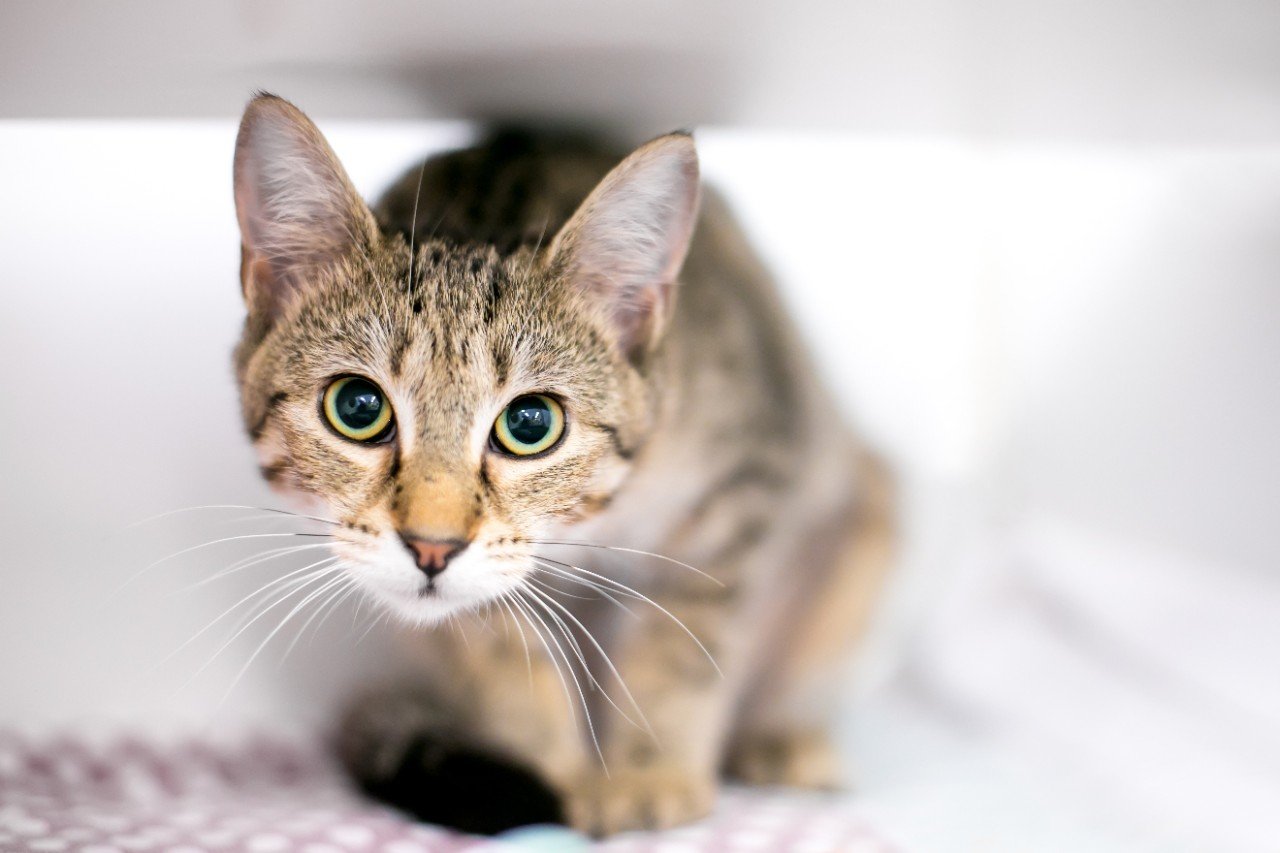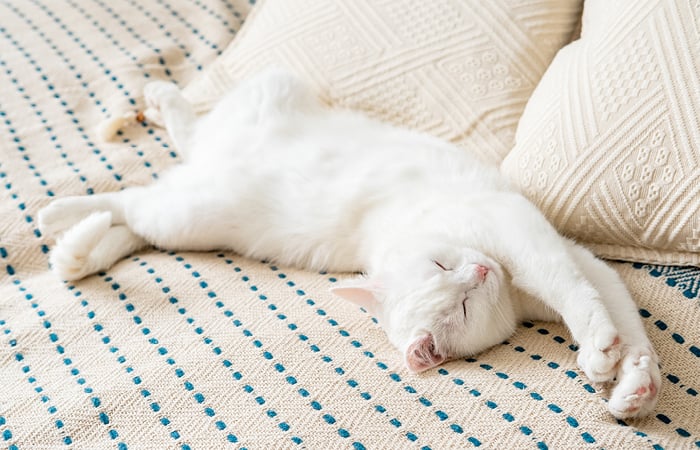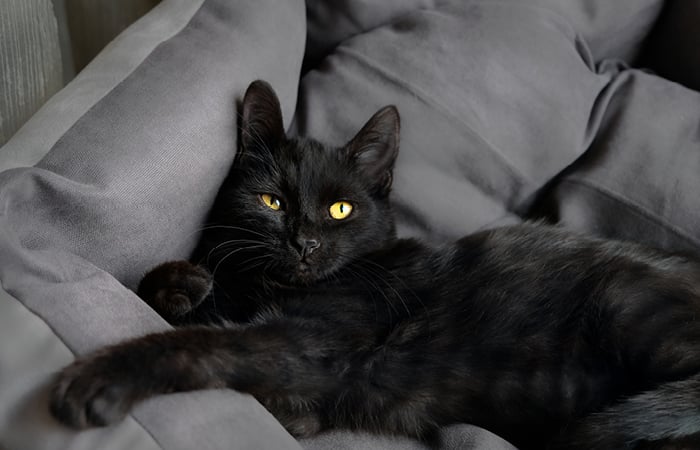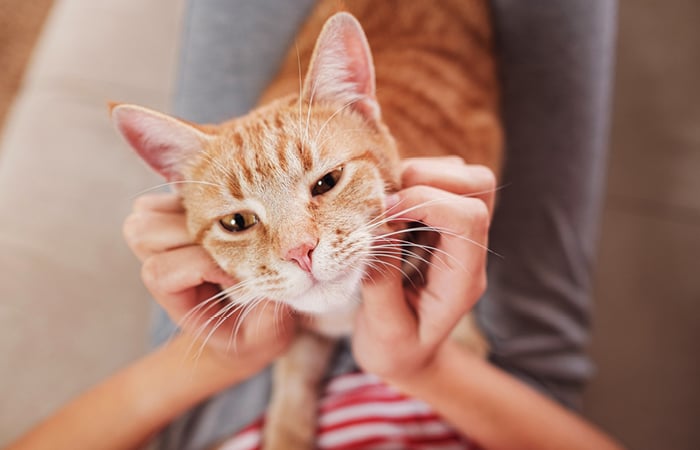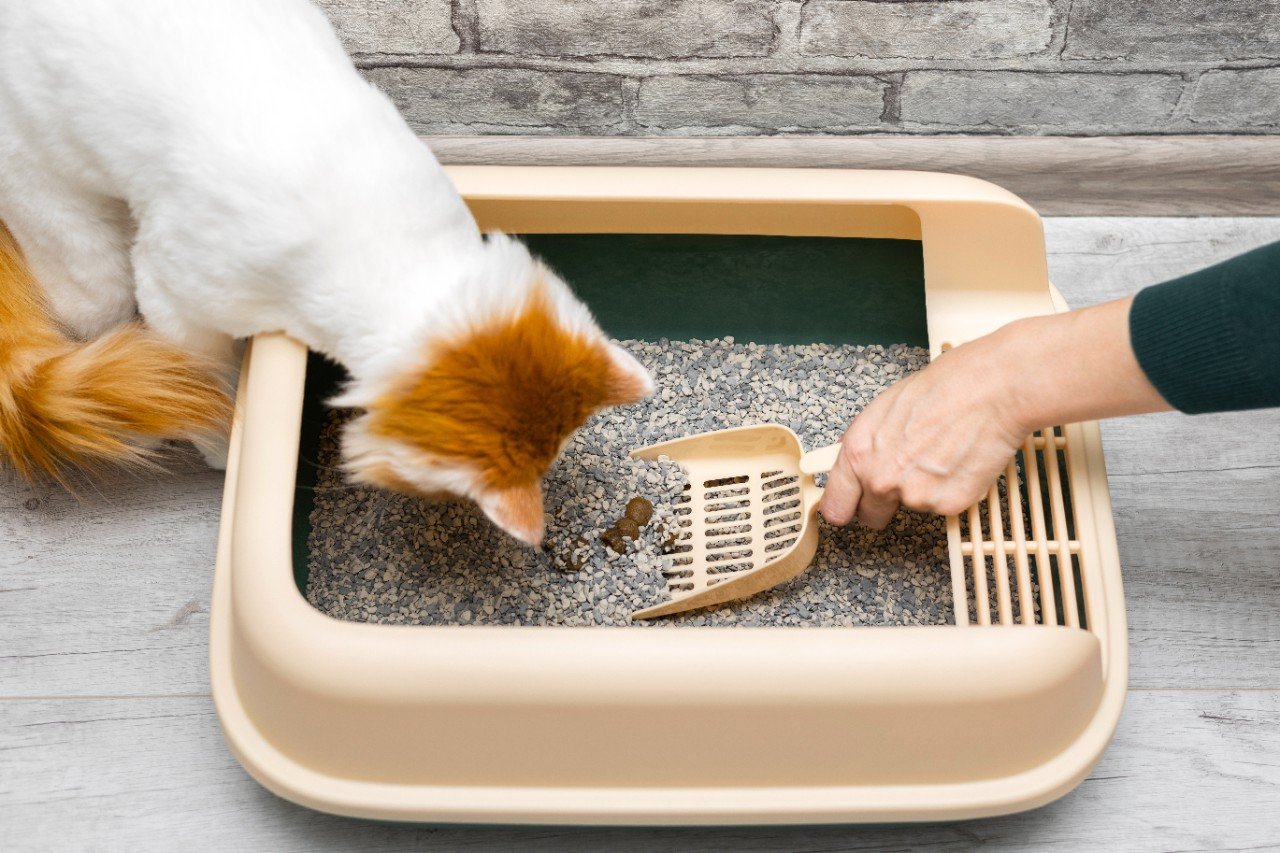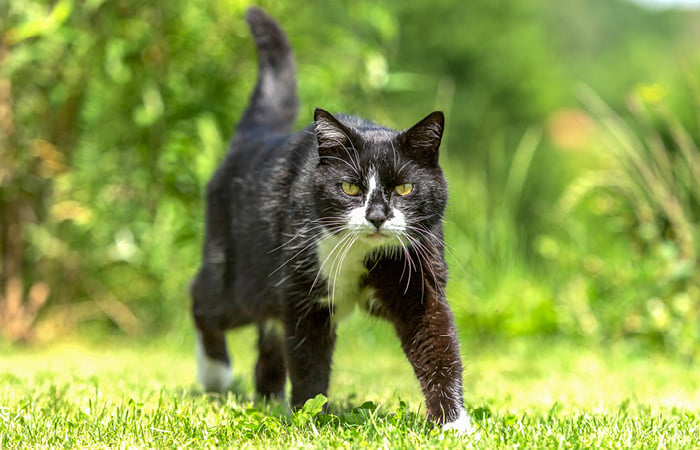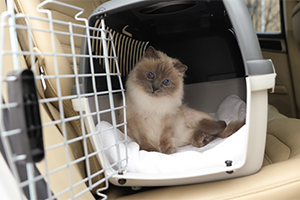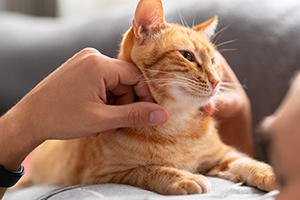Meet Petplan cat behaviourist Nicky Trevorrow
Quick Links
What does a cat behaviourist do?
What are the most common cat behaviour problems you come across?
I see a very varied caseload in my job as Behaviour Manager at Cats Protection, but the top five issues I tend to see regularly are:
- House soiling
- Aggressive behaviour (towards both people and other cats)
- Inter-cat issues
- Fearful hiding behaviours
- Scratching behaviours
It’s always worth remembering that cats are masters at hiding pain, and often this can affect their behaviour – so, if you notice your cat acting out of character, we always recommend getting a vet check first, and once that’s ruled out any medical reasons, getting a referral from your vet to a behaviourist. Petplan may cover this – please check your terms and conditions for full details.
What’s the number one piece of advice you’d give to cat owners?
Always make sure your cats have enough resources! By that I mean food, water, litter trays, scratch posts, sleeping areas and enrichment. You should always have one of each resource per cat, plus one extra – so if you have two cats, you’ll need three litter trays, three food bowls and so on. If you have multiple cats, this helps avoid competition over resources, and ideally even single cats in a household will have more than one of each item. (Many cats like to have the option to wee in one tray and poo in another, and older cats with mobility issues may benefit from having one set of resources upstairs and another downstairs.)
Resources should be spread out within the house (you can practise with Cats Protection’s interactive game). It’s worth doing some research to make sure you get the most suitable resources: take a look at our videos on getting your first cat and creating the best home environment for your cat.
How often are cats rehomed for behavioural reasons?
At Cats Protection, only 7% of the cats that come into our care are surrendered for behavioural reasons. It’s not as common as people might think, and the vast majority of our cats have been well-loved and sadly had to be given up for non-behavioural issues – anything from moving into rented accommodation that doesn’t allow pets to a family bereavement.
Each cat’s behaviour issues are very individual. Before anyone considers rehoming, I’d always recommend a vet check to rule out any medical reasons, and after that speaking with a qualified behaviourist. But sometimes rehoming is the right solution for everyone, including the cat – it can be a welfare-friendly thing to do. At Cats Protection we put cat welfare at the heart of everything we do, so we can find the right home for each cat that comes to us.
What advice would you give someone thinking of adopting a cat?
If your circumstances are right, do it! Other than that, patience is key; even if there aren’t any other pets in the house, give your new cat plenty of time to settle in at their own pace, and make sure they have a safe, calm sanctuary to retreat to if they need it. Every cat’s different, and while one might be ready to explore in a day or two, others will need much more time to make themselves at home. When cats are returned to us, it’s often because they didn’t get along with an existing cat in the family – so introducing new cats very slowly can make it much more likely that the adoption process will be a success.
At Cats Protection we offer six months of free, post-adoption support for all our cats. But regardless of where you’ve adopted from, if you’re a new owner worried about how your cat is settling in, it’s always best to seek support from your vet or a qualified behaviourist as soon as possible.
From 10 June 2024, all pet cats over the age of 20 weeks are legally required to be microchipped. Why is microchipping cats important?
Microchipping is the best permanent, safe form of identification, and gives lost cats the highest chance of being reunited with their owners. We recommend that even indoor cats be microchipped, because if they escape, they can often be more disoriented than a cat used to outdoor access.
A huge number of cats still aren’t microchipped, including 80% of the cats coming into Cats Protection’s adoption centres. If every cat were chipped, it would massively reduce the number of cats who are lost as strays, and help prevent the heartache and stress of owners trying to locate their missing cats.
Can you tell us a little about the work Petplan does in partnership with Cats Protection?
What do you most enjoy about your job?
I love being surrounded by like-minded people, all of us working as a team to help cats on a bigger scale. In addition to our rehoming work, at Cats Protection we also produce a lot of online content that has the potential to make a difference to owners and their cats all over the world. That’s extremely rewarding.
From a personal point of view, I really enjoyed the animated Cat Logic series we worked on with Simon Tofield, creator of Simon’s Cat. From learning how to speak cat to why cats go crazy for catnip, the entire series is a wonderful, fun way for owners to discover more about their cats.
The cost of living crisis is making things harder than ever for many people. What can pet owners do to weather the crisis?
What if people want to keep supporting charities like Cats Protection, but don’t have as much spare income to make a regular donation?
There are plenty of ways supporters can help charities that don’t involve donating money. From signing their petitions to emailing your MP in support of the charity’s agenda or reading and sharing their resources – it all counts! These steps might not take much effort, but they all add up to make a massive difference.
Many charities, including Cats Protection, also love having volunteers (and if you volunteer with us, you don’t need to commit to a specific number of hours). Reach out to your local branch or centre and they’ll be happy to explain how you can get involved.
Petplan is a trading name of Pet Plan Limited (Registered in England No. 1282939) and Allianz Insurance plc (Registered in England No. 84638), Registered office: 57 Ladymead, Guildford, Surrey GU1 1DB.
Pet Plan Limited is authorised and regulated by the Financial Conduct Authority. Financial Services Register No. 311969. Allianz Insurance plc is authorised by the Prudential Regulation Authority and regulated by the Financial Conduct Authority and the Prudential Regulation Authority. Financial Services Register No. 121849. Pet Plan Limited is a subsidiary of Allianz Insurance plc.



